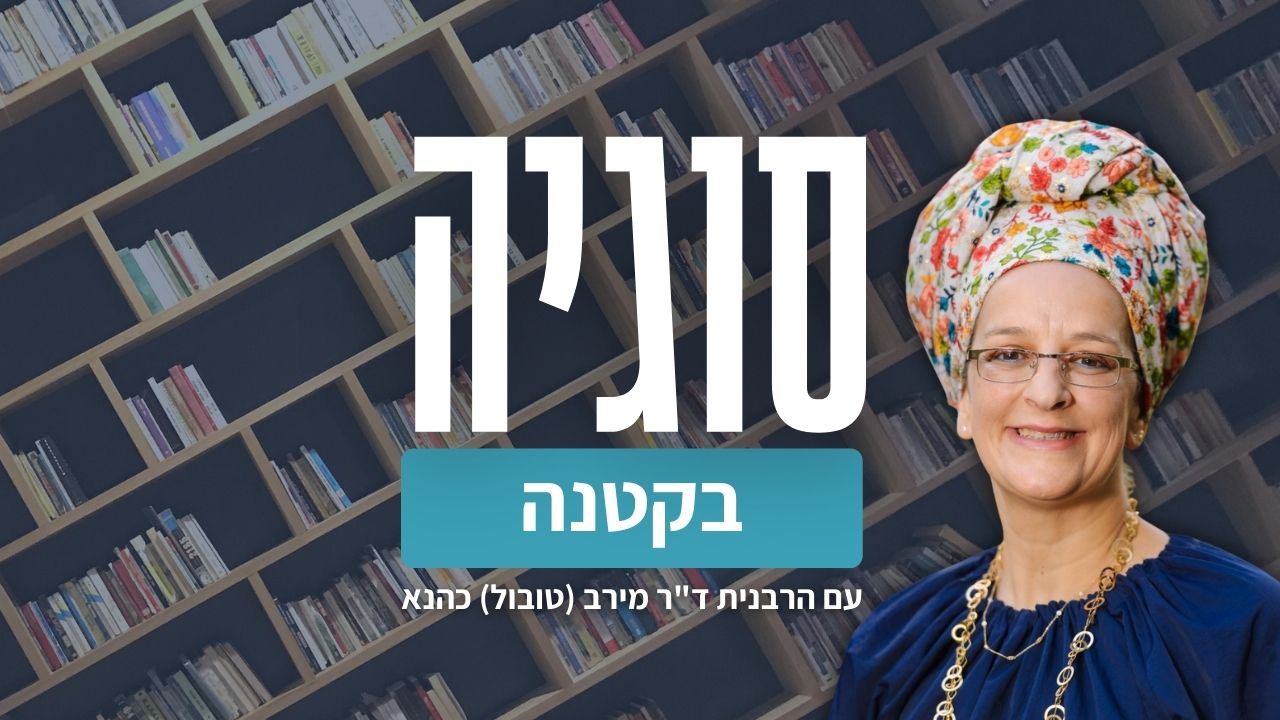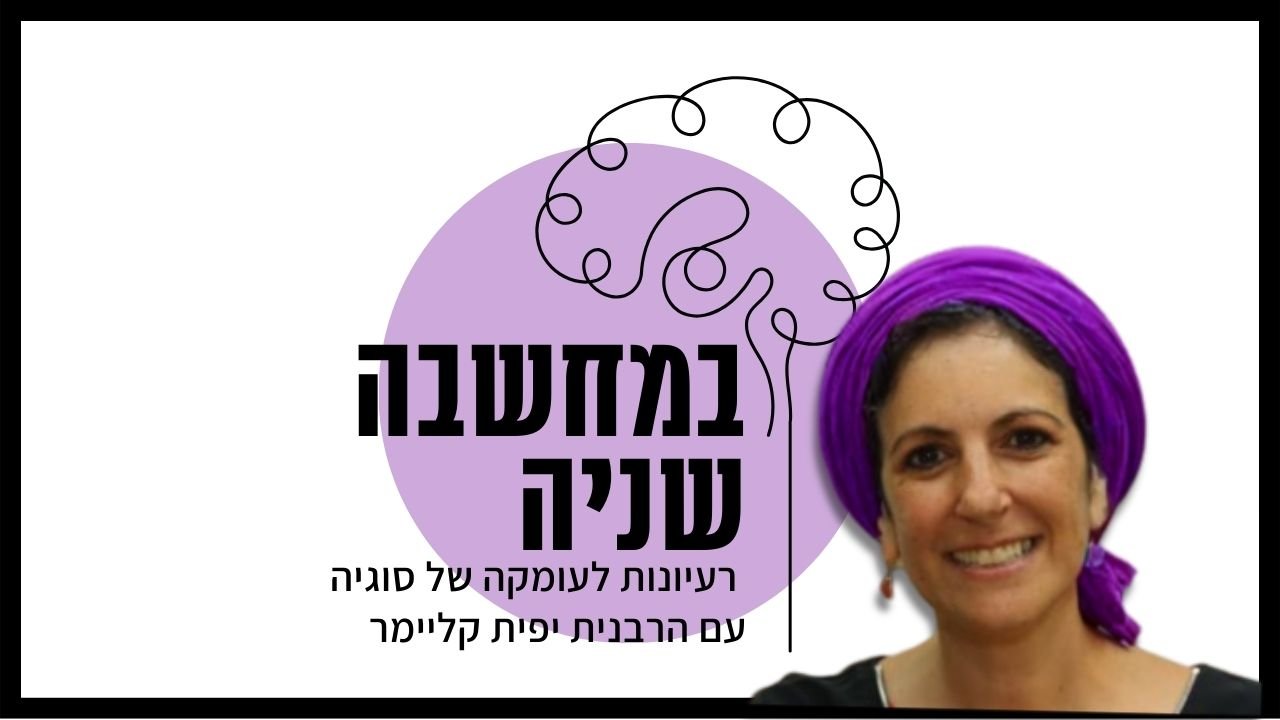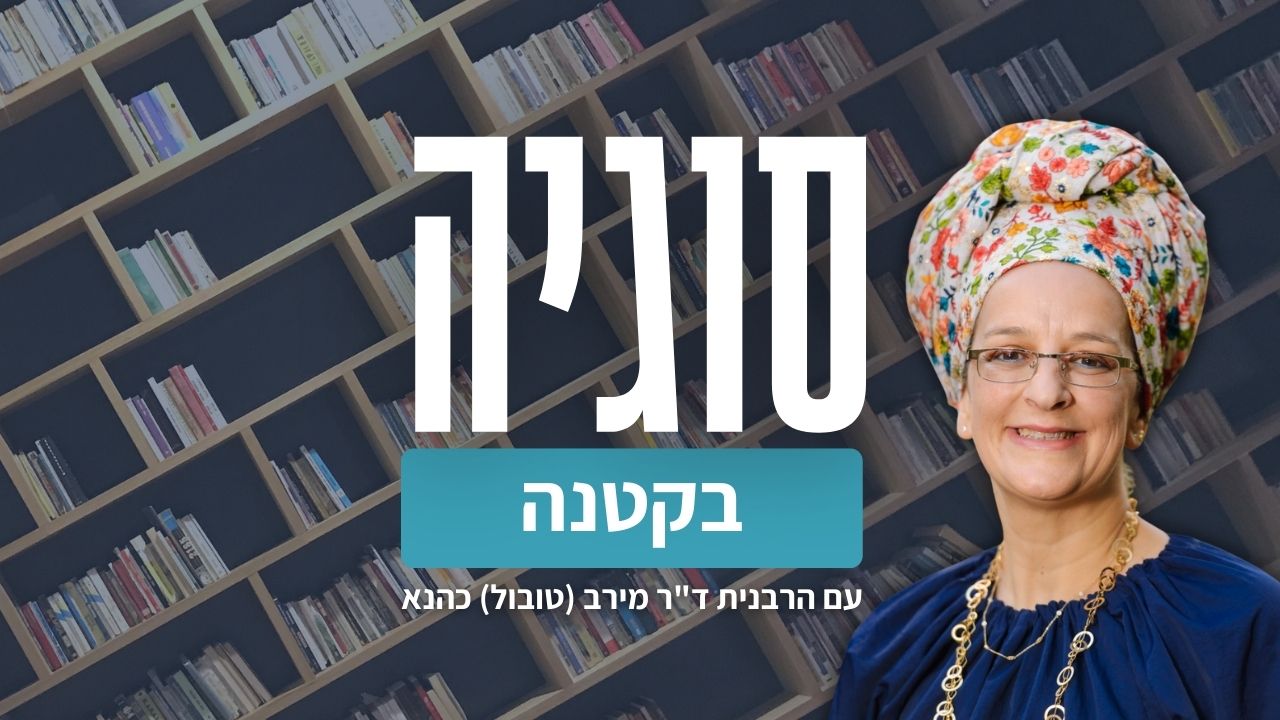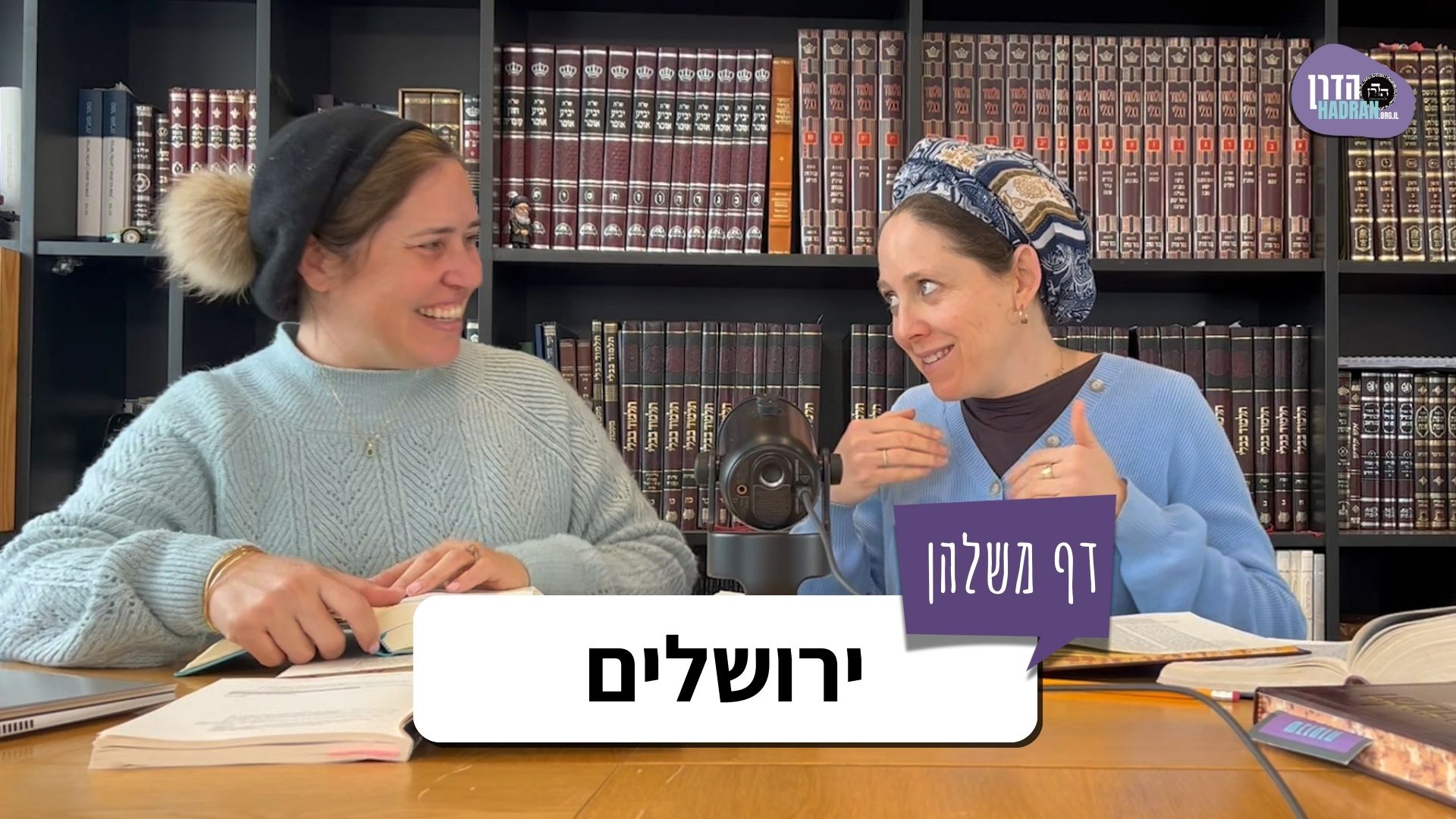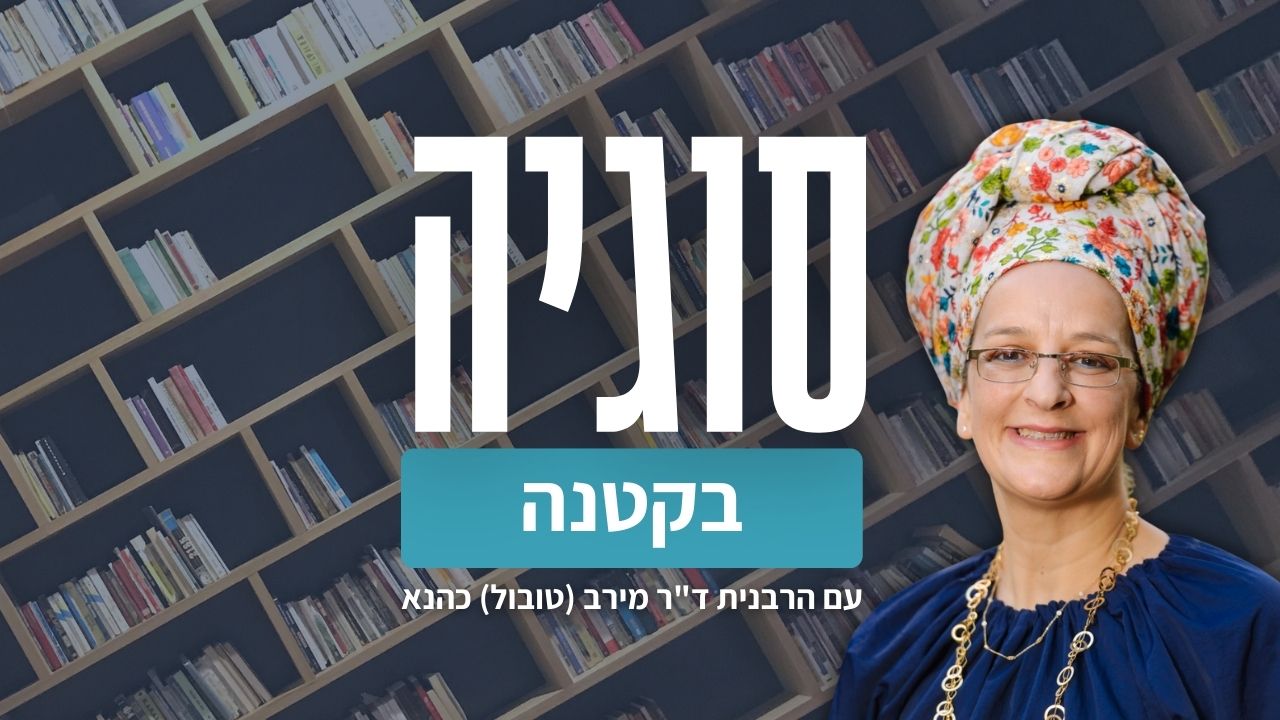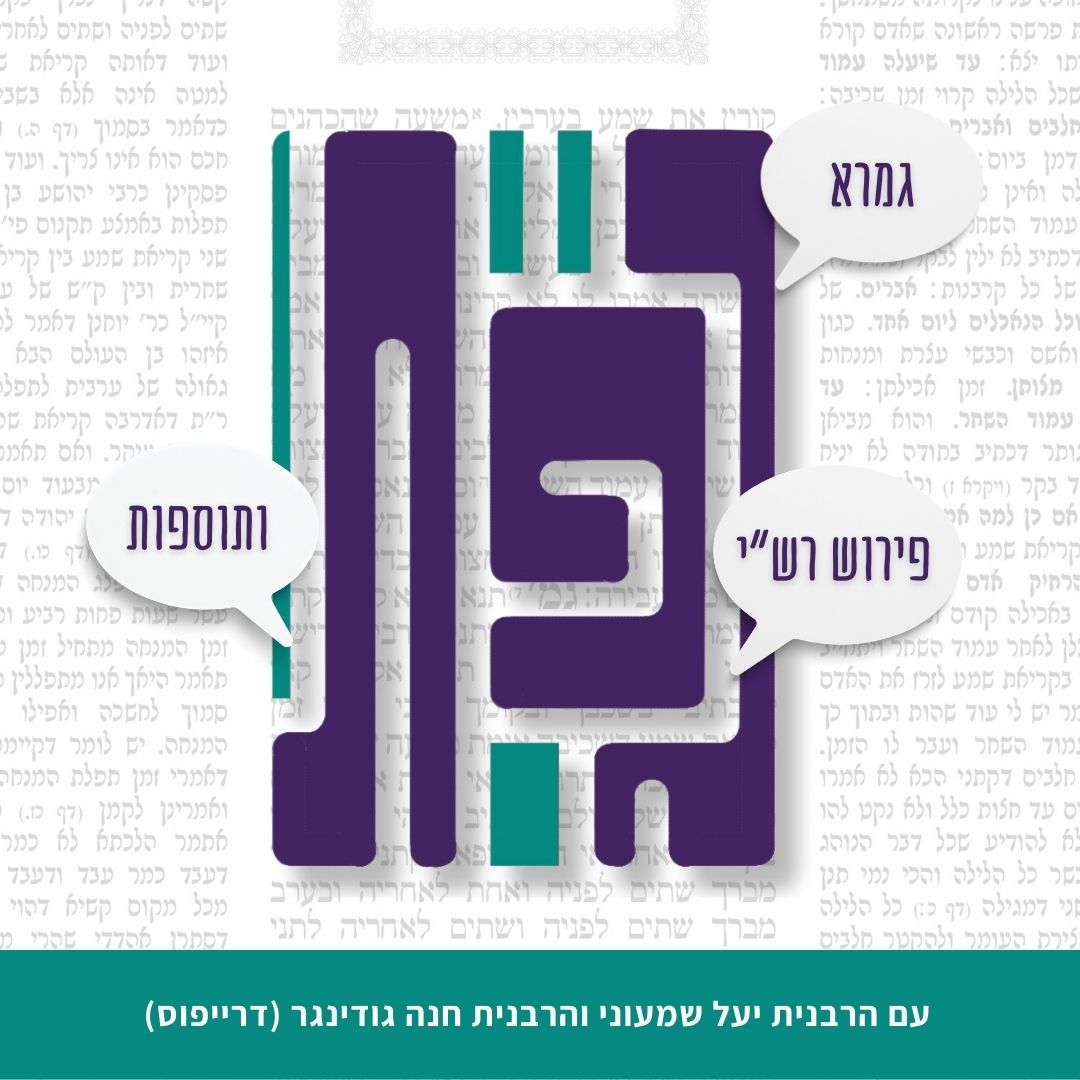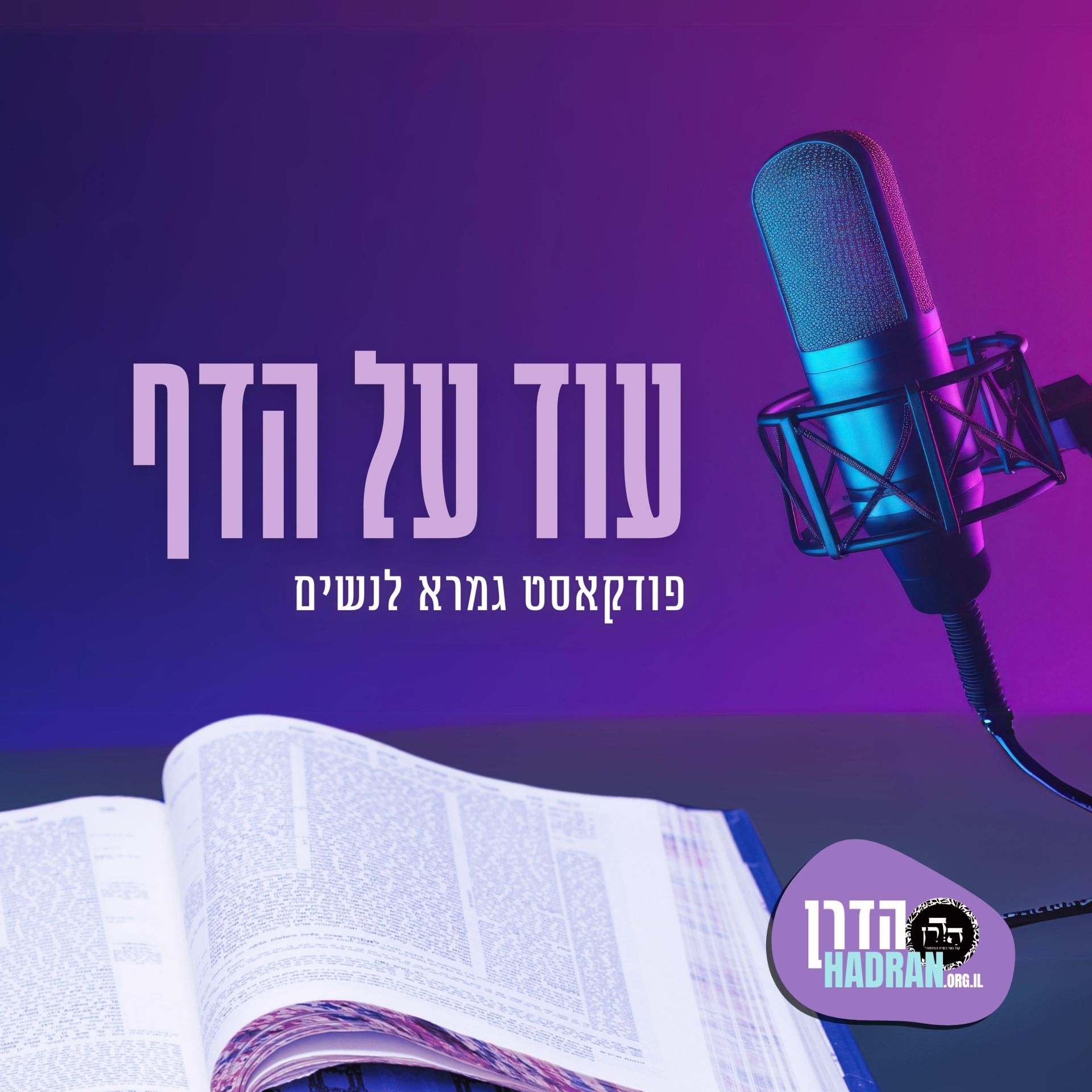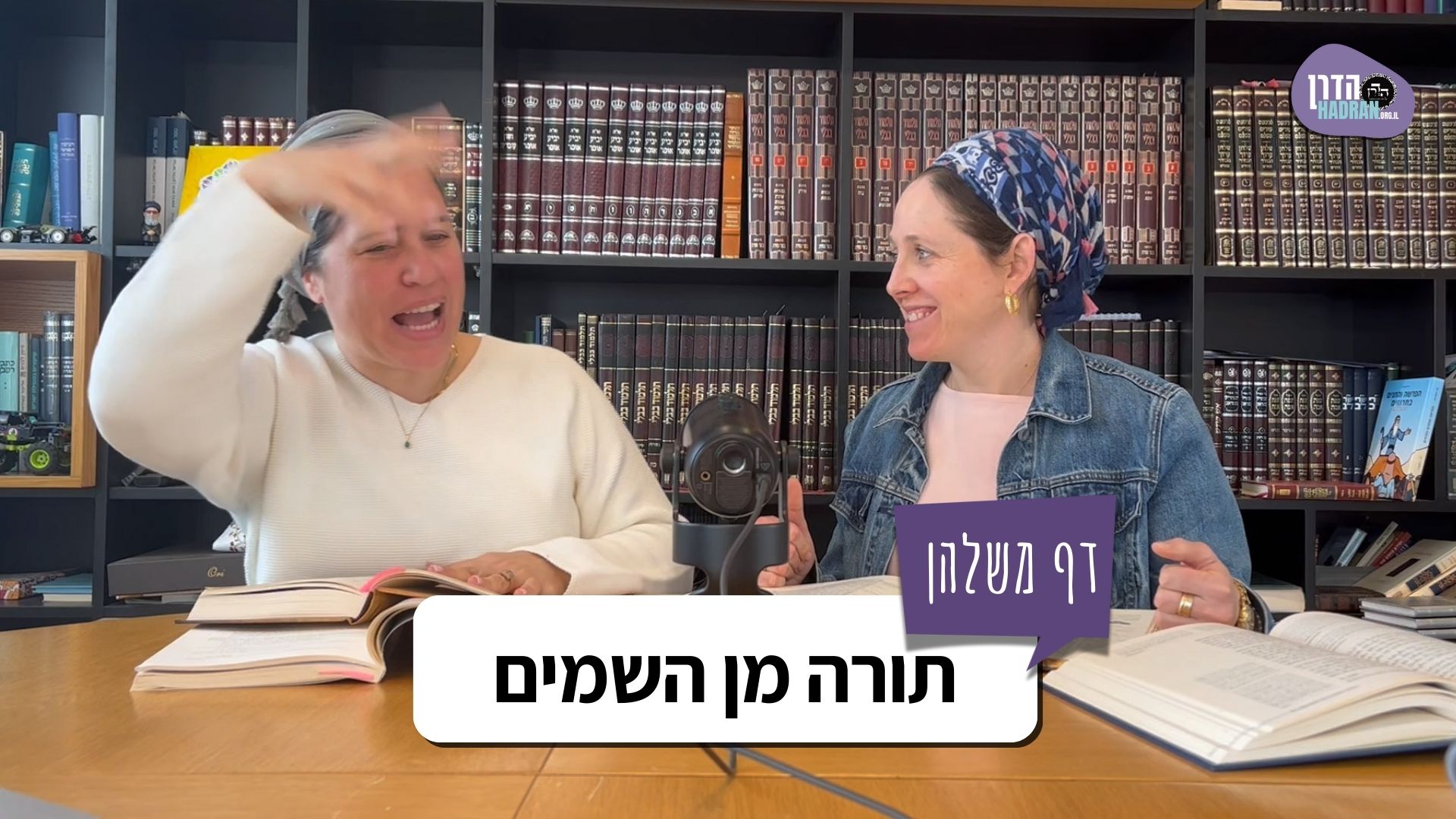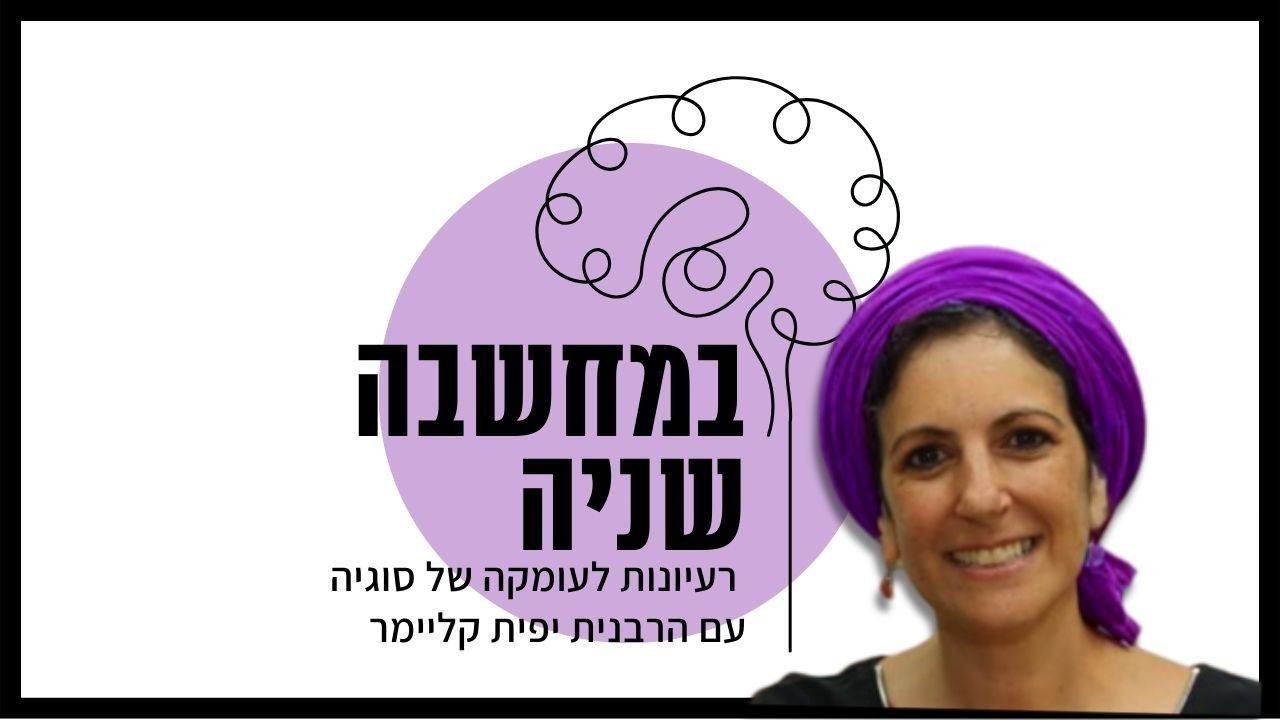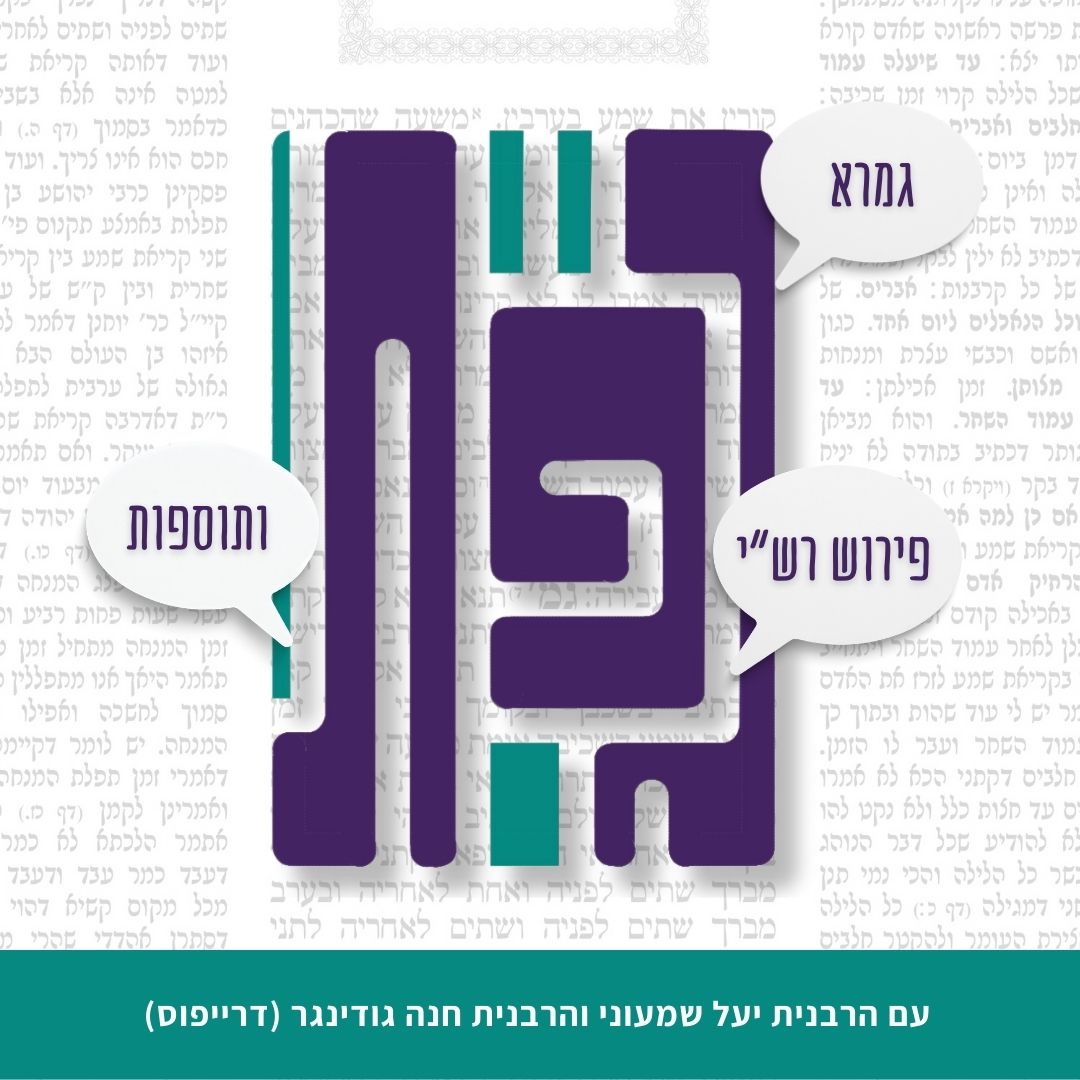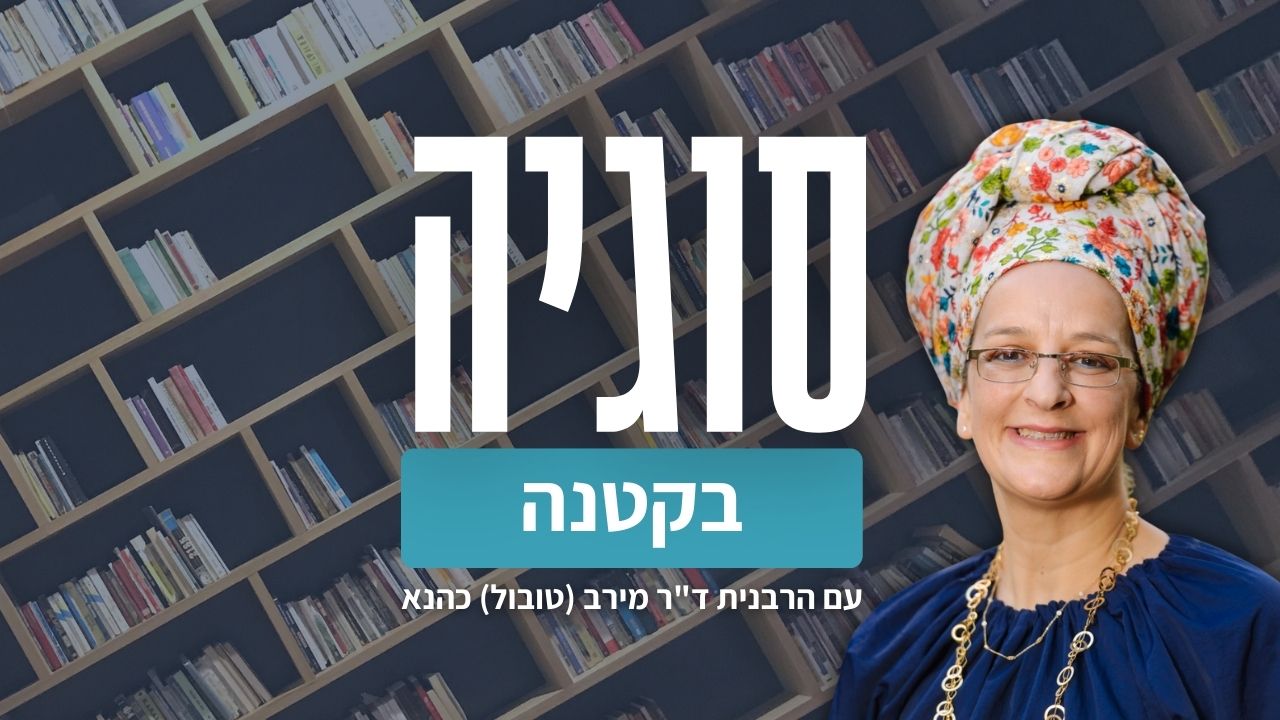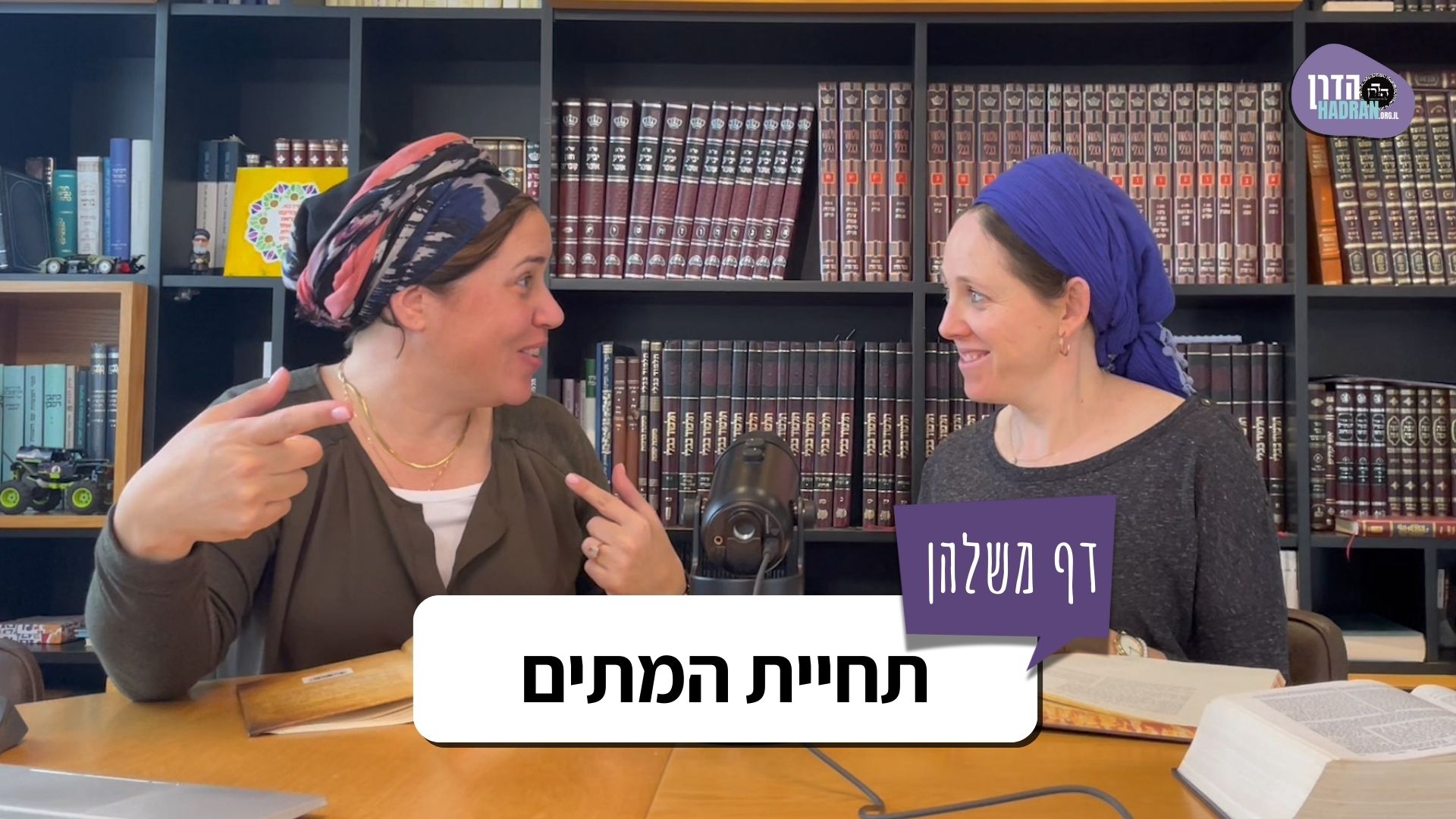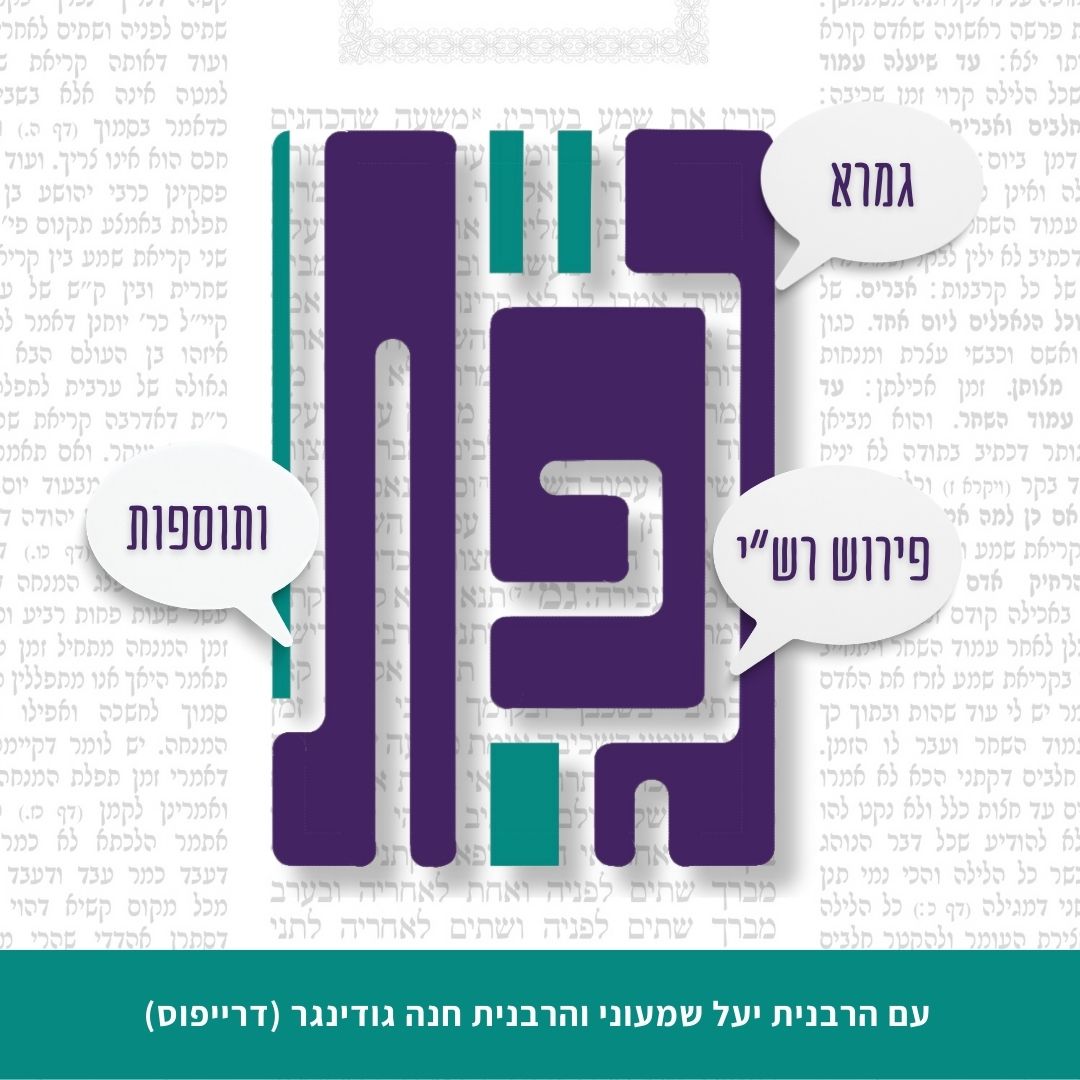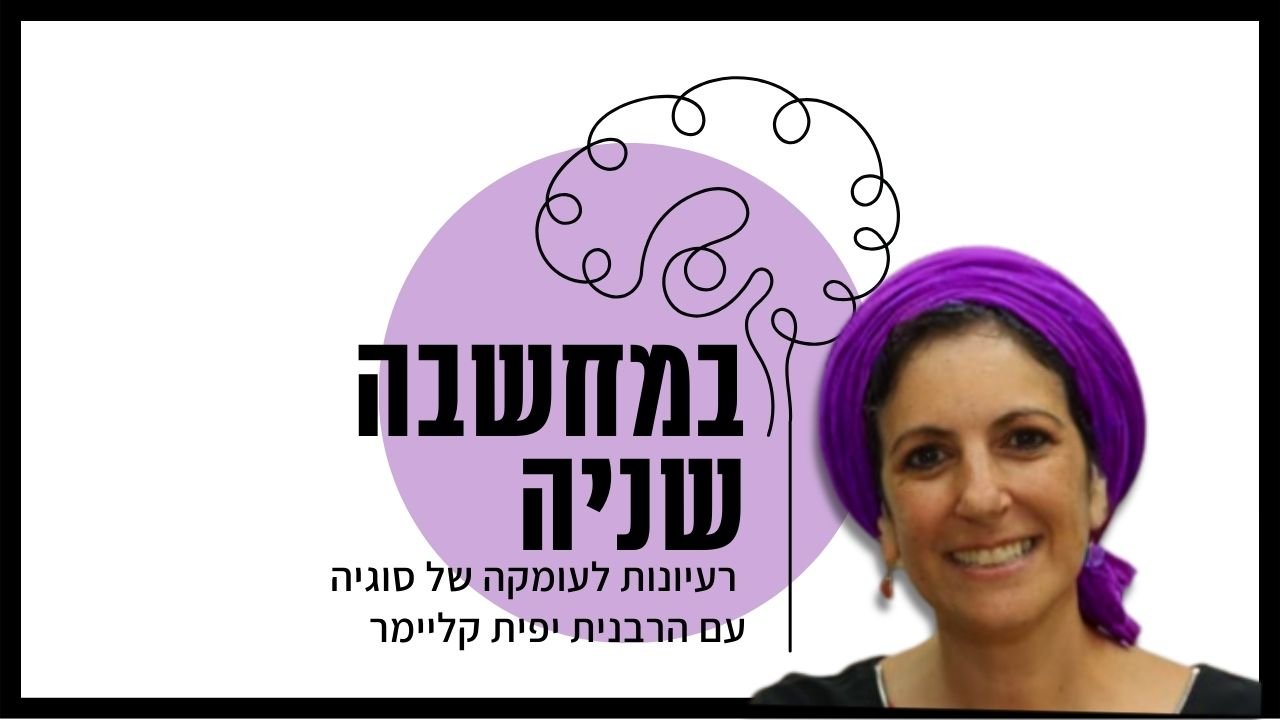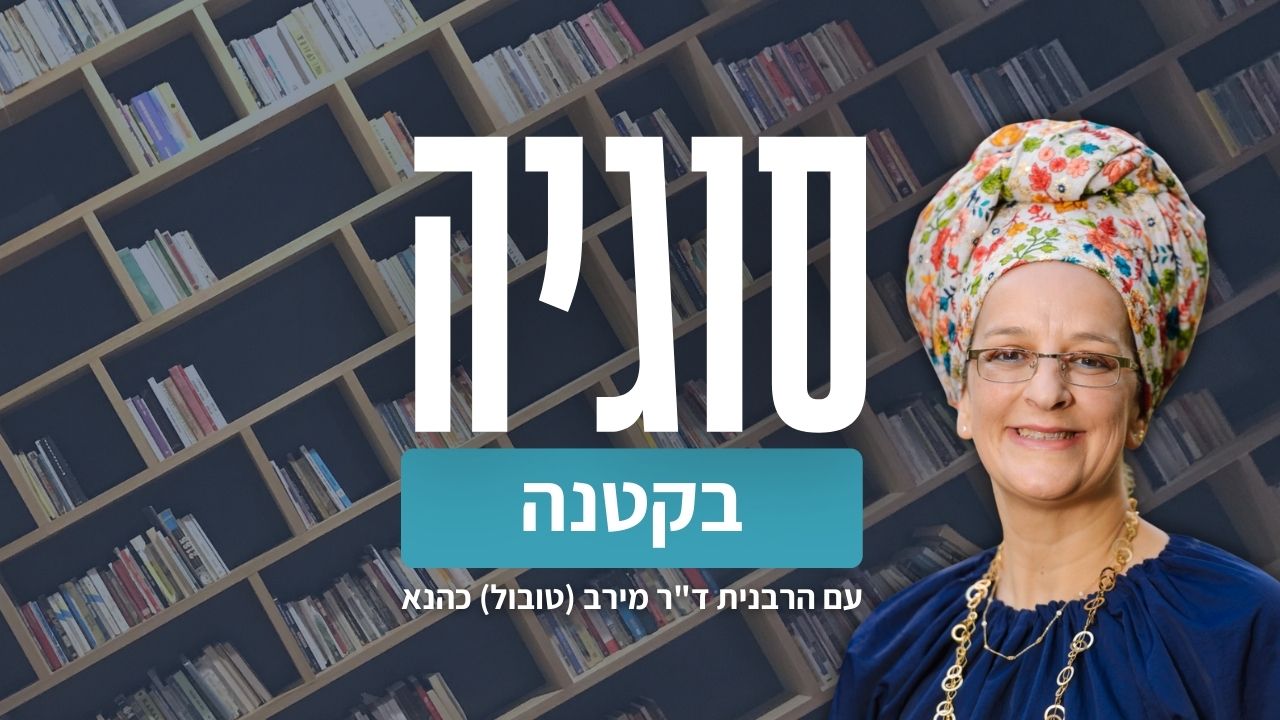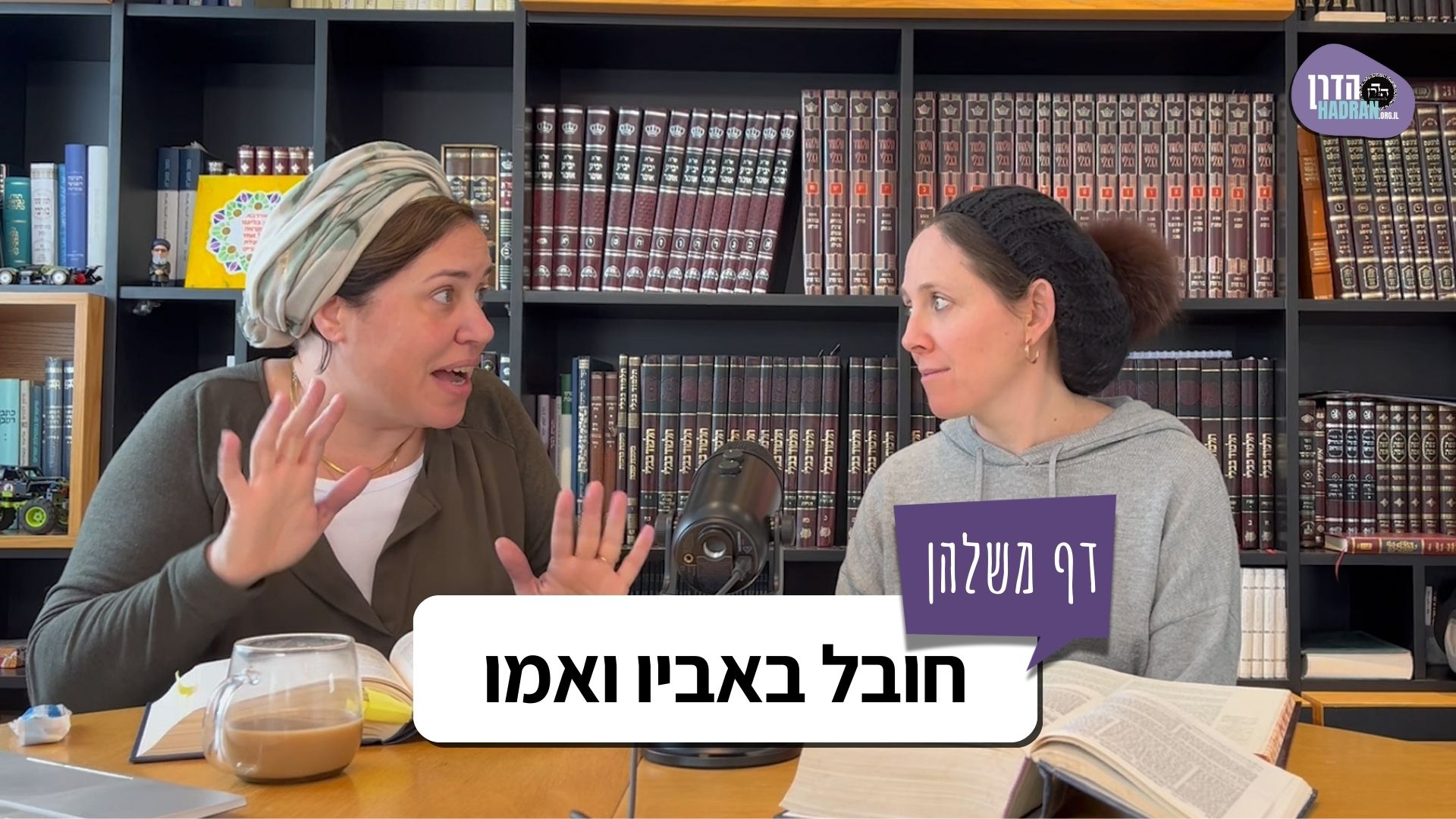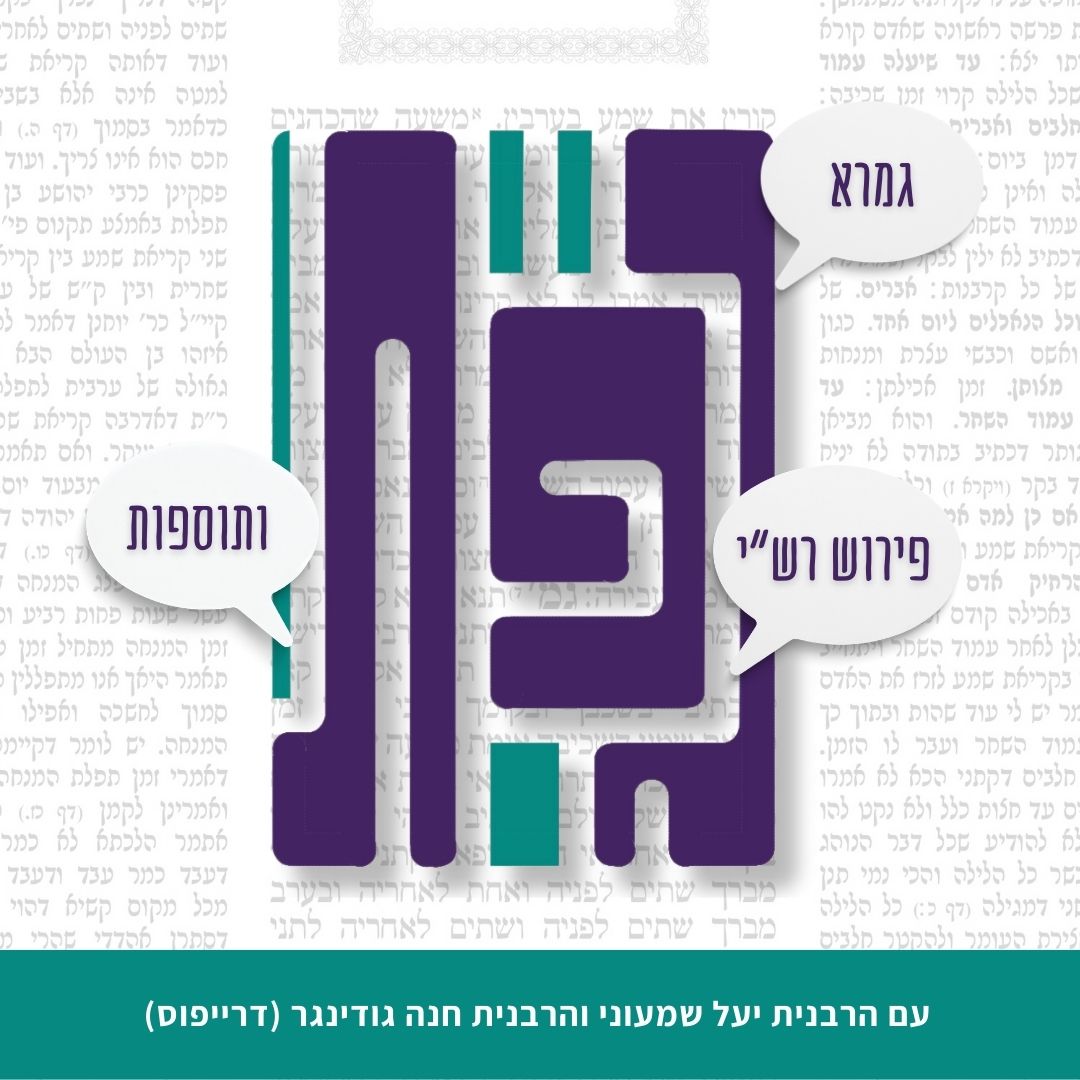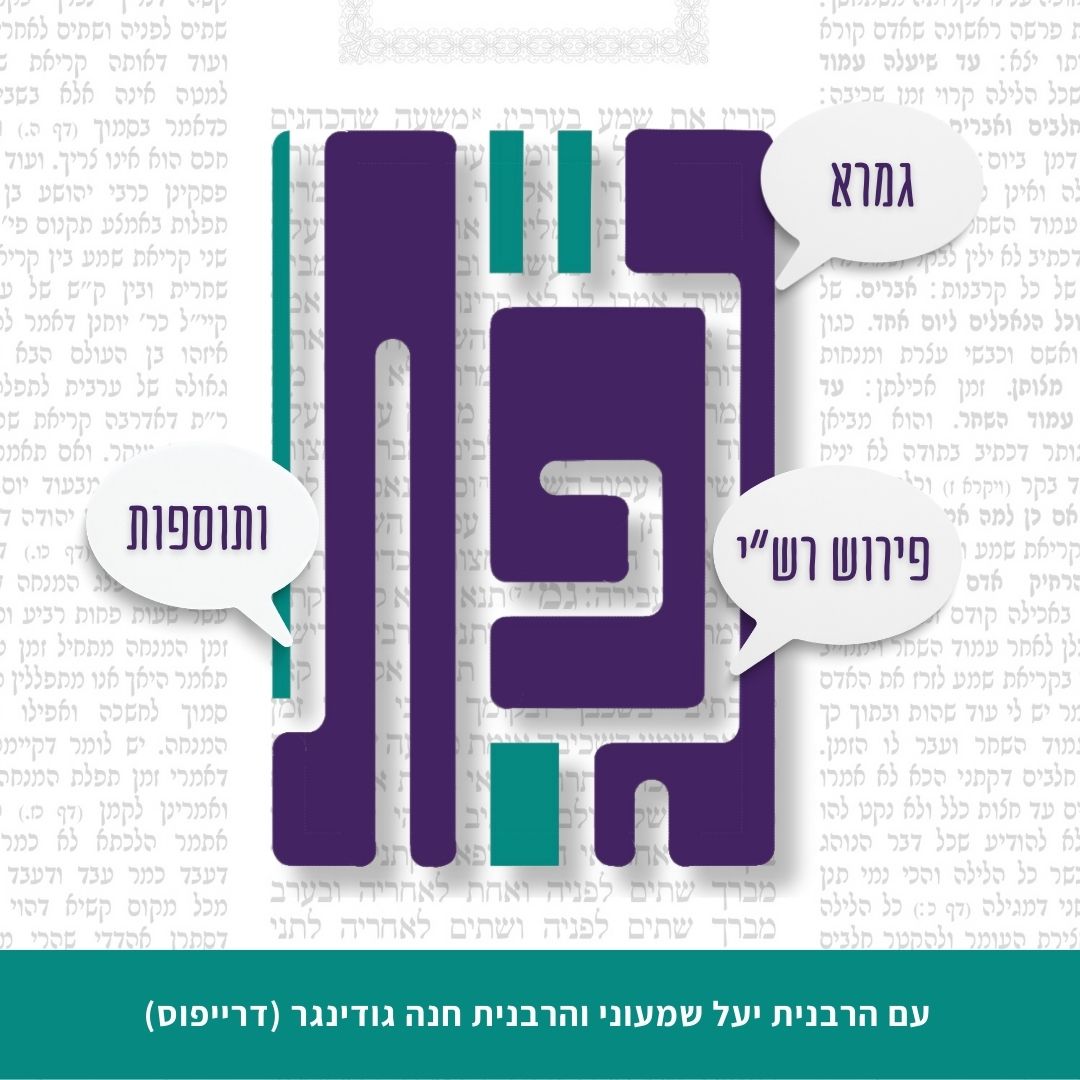סנהדרין צב
יִקְּבֻהוּ לְאוֹם״, וְאֵין לְאוֹם אֶלָּא עוּבָּרִין, שֶׁנֶּאֱמַר: ״וּלְאֹם מִלְּאֹם יֶאֱמָץ״. וְאֵין קַבֹּה אֶלָּא קְלָלָה, שֶׁנֶּאֱמַר: ״מָה אֶקֹּב לֹא קַבֹּה אֵל״. וְאֵין בַּר אֶלָּא תּוֹרָה, שֶׁנֶּאֱמַר: ״נַשְּׁקוּ בַר פֶּן יֶאֱנַף״.
the people [leom] shall curse him [yikkevuhu], but blessing shall be upon the head of one who provides” (Proverbs 11:26). And the term leom is referring to nothing other than fetuses, as it is stated: “Two nations are in your womb, and two peoples shall be separated from your bowels; and the one leom shall overcome the other leom” (Genesis 25:23). And kabbo is referring to nothing other than curse, as it is stated in the statement of Balaam: “How can I curse one who is not cursed [kabbo] by God?” (Numbers 23:8). And bar is referring to nothing other than Torah, as it is stated: “Pay homage to bar lest He be angry” (Psalms 2:12), i.e., observe the Torah to avoid God’s wrath.
עוּלָּא בַּר יִשְׁמָעֵאל אוֹמֵר: מְנַקְּבִין אוֹתוֹ כִּכְבָרָה. כְּתִיב הָכָא: ״יִקְּבֻהוּ לְאוֹם״, וּכְתִיב הָתָם: ״וַיִּקֹּב חֹר בְּדַלְתּוֹ״. וַאֲמַר אַבָּיֵי: כִּי אוּכְלָא דְקַצָּרֵי.
Ulla bar Yishmael says: One perforates like a sieve a person who withholds halakha from a student. It is written here: “He who withholds bar, the people yikkevuhu” (Proverbs 11:26), and it is written there: “And he bored [vayyikkov] a hole in its lid of it” (II Kings 12:10). And Abaye says: One perforates him like a launderers’ utensil used for sprinkling water on garments.
וְאִם לִמְּדוֹ, מָה שְׂכָרוֹ? אָמַר רָבָא אָמַר רַב שֵׁשֶׁת: זוֹכֶה לִבְרָכוֹת כְּיוֹסֵף, שֶׁנֶּאֱמַר: ״וּבְרָכָה לְרֹאשׁ מַשְׁבִּיר״. וְאֵין מַשְׁבִּיר אֶלָּא יוֹסֵף, שֶׁנֶּאֱמַר: ״וְיוֹסֵף הוּא [הַשַּׁלִּיט עַל הָאָרֶץ הוּא] הַמַּשְׁבִּיר לְכׇל עַם הָאָרֶץ״.
And if one teaches the student halakha rather than withholding it, what is his reward? Rava says that Rav Sheshet says: He is privileged to receive blessings like Joseph, as it is stated at the end of that verse: “But blessing shall be upon the head of one who provides [mashbir]” (Proverbs 11:26). And mashbir is referring to no one other than Joseph, as it is stated: “And Joseph was the governor of the land, and he was the provider [hamashbir] to all the people of the land” (Genesis 42:6).
אָמַר רַב שֵׁשֶׁת: כׇּל הַמְלַמֵּד תּוֹרָה בְּעוֹלָם הַזֶּה, זוֹכֶה וּמְלַמְּדָהּ לָעוֹלָם הַבָּא, שֶׁנֶּאֱמַר: ״וּמַרְוֶה גַּם הוּא יוֹרֶה״.
Rav Sheshet says: Anyone who teaches Torah in this world is privileged and teaches it in the World-to-Come, as it is stated: “And he who satisfies abundantly [umarveh] shall be satisfied himself [yoreh]” (Proverbs 11:25). Rav Sheshet interprets the verse homiletically: By transposing the letters of the word marveh: Mem, reish, vav, heh, one arrives at the word moreh, meaning teaches. The verse means that one who teaches [moreh] will teach [yoreh] in the future as well.
אָמַר רָבָא: מִנַּיִין לִתְחִיַּית הַמֵּתִים מִן הַתּוֹרָה? שֶׁנֶּאֱמַר: ״יְחִי רְאוּבֵן וְאַל יָמֹת״. ״יְחִי רְאוּבֵן״ – בָּעוֹלָם הַזֶּה, ״וְאַל יָמֹת״ – לָעוֹלָם הַבָּא. רָבִינָא אָמַר מֵהָכָא: ״וְרַבִּים מִיְּשֵׁנֵי אַדְמַת עָפָר יָקִיצוּ אֵלֶּה לְחַיֵּי עוֹלָם וְאֵלֶּה לַחֲרָפוֹת לְדִרְאוֹן עוֹלָם״. רַב אָשֵׁי אָמַר מֵהָכָא: ״וְאַתָּה לֵךְ [לַקֵּץ] וְתָנוּחַ וְתַעֲמֹד לְגֹרָלְךָ לְקֵץ הַיָּמִין״.
The Gemara returns to the topic of the source for resurrection in the Torah. Rava says: From where is resurrection of the dead derived from the Torah? It is derived from a verse, as it is stated: “Let Reuben live and not die, in that his men become few” (Deuteronomy 33:6). This is interpreted: “Let Reuben live” in this world “and not die” in the World-to-Come. Ravina says that resurrection is derived from here: “And many of those who sleep in the dust of the earth shall awaken, some to everlasting life, and some to reproaches and everlasting disgrace” (Daniel 12:2). Rav Ashi says proof is derived from here: “But go you your way until the end be; and you shall rest, and arise to your lot at the end of days” (Daniel 12:13).
אָמַר רַבִּי אֶלְעָזָר: כׇּל פַּרְנָס שֶׁמַּנְהִיג אֶת הַצִּבּוּר בְּנַחַת, זוֹכֶה וּמַנְהִיגָם לָעוֹלָם הַבָּא, שֶׁנֶּאֱמַר: ״כִּי מְרַחֲמָם יְנַהֲגֵם וְעַל מַבּוּעֵי מַיִם יְנַהֲלֵם״.
§ Rabbi Elazar says: Any communal leader who leads the community calmly, without anger and honestly, is privileged and leads them in the World-to-Come, as it is stated: “For he that has compassion upon them will lead them, even by the springs of water shall he guide them” (Isaiah 49:10). Just as he led them in this world, so too will he guide them in the World-to-Come.
וְאָמַר רַבִּי אֶלְעָזָר: גְּדוֹלָה דֵּעָה, שֶׁנִּיתְּנָה בֵּין שְׁתֵּי אוֹתִיּוֹת, שֶׁנֶּאֱמַר ״כִּי אֵל דֵּעוֹת ה׳״.
The Gemara proceeds to cite additional statements of Rabbi Elazar relating to recommended conduct. And Rabbi Elazar says: Great is knowledge, as it was placed between two letters, two names of God, as it is stated: “For a God of knowledge is the Lord” (I Samuel 2:3).
וְאָמַר רַבִּי אֶלְעָזָר: גָּדוֹל מִקְדָּשׁ שֶׁנִּיתַּן בֵּין שְׁתֵּי אוֹתִיּוֹת, שֶׁנֶּאֱמַר: ״פָּעַלְתָּ ה׳ מִקְּדָשׁ ה׳ כּוֹנְנוּ יָדֶיךָ״. מַתְקֵיף לַהּ רַב אַדָּא קַרְחִינָאָה: אֶלָּא מֵעַתָּה, גְּדוֹלָה נְקָמָה שֶׁנִּיתְּנָה בֵּין שְׁתֵּי אוֹתִיּוֹת, דִּכְתִיב: ״אֵל נְקָמוֹת ה׳ אֵל נְקָמוֹת הוֹפִיַע״!
And Rabbi Elazar says: Great is the Holy Temple, as it too was placed between two letters, two names of God, as it is stated: “The place in which to dwell that You have made, Lord, the Temple, Lord, which Your hands have prepared” (Exodus 15:17). Rav Adda Karḥina’a objects to the explanation that being placed between two names of God accords significance. If that is so, the same should hold true for vengeance. Shall one say: Great is vengeance, as it was placed between two letters, as it is written: “God of vengeance, Lord, God of vengeance shine forth” (Psalms 94:1)?
אֲמַר לֵיהּ: לְמִילְּתֵיהּ הָכִי נָמֵי, כִּדְעוּלָּא. דְּאָמַר עוּלָּא: שְׁתֵּי הוֹפָעָיוֹת הַלָּלוּ לָמָּה? אַחַת לְמִידָּה טוֹבָה, וְאַחַת לְמִדַּת פּוּרְעָנוּת.
Rabbi Elazar said to him: In its context, indeed, vengeance is great, in accordance with the statement of Ulla. As Ulla says with regard to these two appearances: “O Lord, God to Whom vengeance belongs; God to Whom vengeance belongs, appear” (Psalms 94:1), and: “He appeared from Mount Paran” (Deuteronomy 33:2), why are both necessary? One, the second verse, is necessary for the attribute of divine good, with which God gave the Torah at Sinai, and one, the first verse, is necessary for the attribute of divine punishment, with which God exacts vengeance against the enemies and oppressors of the Jewish people.
וְאָמַר רַבִּי אֶלְעָזָר: כׇּל אָדָם שֶׁיֵּשׁ בּוֹ דֵּעָה, כְּאִילּוּ נִבְנָה בֵּית הַמִּקְדָּשׁ בְּיָמָיו, שֶׁזֶּה נִיתַּן בֵּין שְׁתֵּי אוֹתִיּוֹת, וְזֶה נִיתַּן בֵּין שְׁתֵּי אוֹתִיּוֹת.
And Rabbi Elazar says: With regard to any person in whom there is knowledge, it is as though the Temple was built in his days, as this, knowledge, was placed between two letters and that, the Temple, was placed between two letters.
וְאָמַר רַבִּי אֶלְעָזָר: כׇּל אָדָם שֶׁיֵּשׁ בּוֹ דֵּעָה, לְסוֹף מִתְעַשֵּׁר, שֶׁנֶּאֱמַר: ״וּבְדַעַת חֲדָרִים יִמָּלְאוּ כׇּל הוֹן יָקָר וְנָעִים״.
And Rabbi Elazar says: Any person in whom there is knowledge ultimately becomes wealthy, as it is stated: “And by knowledge are the chambers filled with all precious and pleasant riches” (Proverbs 24:4).
וְאָמַר רַבִּי אֶלְעָזָר: כׇּל אָדָם שֶׁאֵין בּוֹ דֵּעָה אָסוּר לְרַחֵם עָלָיו, שֶׁנֶּאֱמַר: ״כִּי לֹא עַם בִּינוֹת הוּא עַל כֵּן לֹא יְרַחֲמֶנּוּ עֹשֵׂהוּ וְיֹצְרוֹ לֹא יְחֻנֶּנּוּ״.
And Rabbi Elazar says: With regard to any person in whom there is no knowledge, it is prohibited to have mercy upon him, as it is stated: “For it is a people of no understanding; therefore its Maker will have no mercy on them, and its Creator will show them no favor” (Isaiah 27:11). If God has no mercy upon them, all the more so should people not show them mercy.
וְאָמַר רַבִּי אֶלְעָזָר: כׇּל הַנּוֹתֵן פִּיתּוֹ לְמִי שֶׁאֵין בּוֹ דֵּעָה, יִסּוּרִין בָּאִין עָלָיו, שֶׁנֶּאֱמַר: ״לַחְמְךָ יָשִׂימוּ מָזוֹר תַּחְתֶּיךָ אֵין תְּבוּנָה בּוֹ״. וְאֵין מָזוֹר אֶלָּא יִסּוּרִין, שֶׁנֶּאֱמַר: ״וַיַּרְא אֶפְרַיִם אֶת חׇלְיוֹ וִיהוּדָה אֶת מְזֹרוֹ״.
And Rabbi Elazar says: With regard to anyone who gives his bread to one without knowledge, afflictions befall him, as it is stated: “They who eat your bread will place mazor under you, in whom there is no discernment” (Obadiah 1:7). And mazor means nothing other than afflictions, based on the parallel with another verse, as it is stated: “And Ephraim saw his sickness and Judah his wound [mezoro]” (Hosea 5:13). This indicates that one who gives his bread to one without discernment will ultimately fall ill.
וְאָמַר רַבִּי אֶלְעָזָר: כׇּל אָדָם שֶׁאֵין בּוֹ דֵּעָה, לְסוֹף גּוֹלֶה, שֶׁנֶּאֱמַר: ״לָכֵן גָּלָה עַמִּי מִבְּלִי דָעַת״.
And Rabbi Elazar says: Any person in whom there is no knowledge is ultimately exiled, as it is stated: “Therefore my people are exiled, for lack of knowledge” (Isaiah 5:13).
וְאָמַר רַבִּי אֶלְעָזָר: כׇּל בַּיִת שֶׁאֵין דִּבְרֵי תוֹרָה נִשְׁמָעִים בּוֹ בַּלַּיְלָה, אֵשׁ אוֹכַלְתּוֹ, שֶׁנֶּאֱמַר: ״כׇּל חֹשֶׁךְ טָמוּן לִצְפּוּנָיו תְּאׇכְלֵהוּ אֵשׁ לֹא נֻפָּח יֵרַע שָׂרִיד בְּאׇהֳלוֹ״. אֵין שָׂרִיד אֶלָּא תַּלְמִיד חָכָם, שֶׁנֶּאֱמַר: ״וּבַשְּׂרִידִים אֲשֶׁר ה׳ קֹרֵא״.
And Rabbi Elazar says: With regard to any house in which there are no matters of Torah heard at night, the fire of Gehenna consumes it, as it is stated: “All darkness is laid up for his treasures, a fire not fanned shall consume him; it shall go ill with a sarid in his tent” (Job 20:26). Sarid is referring to no one but a Torah scholar, as it is stated: “And among the seridim, those whom the Lord shall call” (Joel 3:5). A house that is dark at night and in which no Torah is heard will be consumed by a fire that does not require fanning with a bellows, the fire of Gehenna.
וְאָמַר רַבִּי אֶלְעָזָר: כׇּל שֶׁאֵינוֹ מְהַנֶּה תַּלְמִידֵי חֲכָמִים מִנְּכָסָיו, אֵינוֹ רוֹאֶה סִימַן בְּרָכָה לְעוֹלָם, שֶׁנֶּאֱמַר: ״אֵין שָׂרִיד לְאׇכְלוֹ עַל כֵּן לֹא יָחִיל טוּבוֹ״. אֵין ״שָׂרִיד״ אֶלָּא תַּלְמִידֵי חֲכָמִים, שֶׁנֶּאֱמַר: ״וּבַשְּׂרִידִים אֲשֶׁר ה׳ קֹרֵא״.
And Rabbi Elazar says: Anyone who does not benefit Torah scholars from his property never sees a sign of blessing, as it is stated: “None of his food shall remain [sarid]; therefore his prosperity shall not endure” (Job 20:21). Sarid is referring to no one but Torah scholars, as it is stated: “And among the seridim, those whom the Lord shall call.” No prosperity will come to one who does not share his food with a Torah scholar.
וְאָמַר רַבִּי אֶלְעָזָר: כׇּל שֶׁאֵינוֹ מְשַׁיֵּיר פַּת עַל שֻׁלְחָנוֹ, אֵינוֹ רוֹאֶה סִימַן בְּרָכָה לְעוֹלָם, שֶׁנֶּאֱמַר: ״אֵין שָׂרִיד לְאׇכְלוֹ עַל כֵּן לֹא יָחִיל טוּבוֹ״.
And Rabbi Elazar says: Anyone who does not leave bread on his table at the end of his meal indicating his gratitude to God for providing him more than enough never sees a sign of blessing, as it is stated: “None of his food shall remain; therefore his prosperity shall not endure.”
וְהָאָמַר רַבִּי אֶלְעָזָר: כׇּל הַמְשַׁיַּיר פְּתִיתִים עַל שֻׁלְחָנוֹ כְּאִילּוּ עוֹבֵד עֲבוֹדָה זָרָה, שֶׁנֶּאֱמַר: ״הָעֹרְכִים לַגַּד שֻׁלְחָן וְהַמְמַלְאִים לַמְנִי מִמְסָךְ״! לָא קַשְׁיָא: הָא דְּאִיכָּא שְׁלֵימָה בַּהֲדֵיהּ, הָא דְּלֵיכָּא שְׁלֵימָה בַּהֲדֵיהּ.
The Gemara asks: But doesn’t Rabbi Elazar say: With regard to anyone who leaves pieces of bread on his table, it is as if he worships idols, as it is stated: “Who prepare a table for Fortune [Gad] and offer blended wine for Destiny” (Isaiah 65:11). The people would leave pieces of bread on the table as an offering to the constellation Gad, which they believed influences the fortune of the home. This practice was a form of idol worship. The Gemara answers: This apparent contradiction is not difficult: This case, where leaving pieces of bread is a form of idol worship, applies when there is a whole loaf together with the pieces, as the addition of the pieces is clearly for idol worship; that case, where failure to leave bread on the table is criticized, applies when there is no whole loaf together with the pieces.
וְאָמַר רַבִּי אֶלְעָזָר: כׇּל הַמַּחְלִיף בְּדִיבּוּרוֹ כְּאִילּוּ עוֹבֵד עֲבוֹדָה זָרָה. כְּתִיב הָכָא: ״וְהָיִיתִי בְעֵינָיו כִּמְתַעְתֵּעַ״, וּכְתִיב הָתָם: ״הֶבֶל הֵמָּה מַעֲשֵׂה תַּעְתֻּעִים״.
And Rabbi Elazar says: With regard to anyone who amends the truth in his speech, it is as though he worships idols. As, it is written here, in the verse where Jacob sought to resist taking his father’s blessing from Esau: “And I shall seem to him a deceiver [metate’a]” (Genesis 27:12), and it is written there with regard to idol worship: “They are vanity, the work of deception [tatuim]” (Jeremiah 10:15).
וְאָמַר רַבִּי אֶלְעָזָר: כׇּל הַמִּסְתַּכֵּל בְּעֶרְוָה, קַשְׁתּוֹ נִנְעֶרֶת, שֶׁנֶּאֱמַר: ״עֶרְיָה תֵעוֹר קַשְׁתֶּךָ״.
And Rabbi Elazar says: With regard to anyone who looks at nakedness [erva], his bow is emptied, i.e., he will be robbed of his potency, as it is stated: “Your bow is stripped bare [erya]” (Habakkuk 3:9).
וְאָמַר רַבִּי אֶלְעָזָר: לְעוֹלָם הָוֵי קָבֵל וְקַיָּים. אָמַר רַבִּי זֵירָא: אַף אֲנַן נָמֵי תְּנֵינָא, בַּיִת אָפֵל אֵין פּוֹתְחִין לוֹ חַלּוֹנוֹת לִרְאוֹת נִגְעוֹ. שְׁמַע מִינַּהּ.
And Rabbi Elazar says: Forever be in the dark, i.e., anonymous, and you will continue to exist. Rabbi Zeira says: We learn a similar idea in a mishna as well (Nega’im 2:3): In a dark house, one does not open windows to illuminate it in order to see whether or not its blemish is leprosy, and the house retains the presumptive status of ritual purity. Those matters that are obscured are allowed to continue. The Gemara affirms: Conclude from that mishna that this is so.
אָמַר רַבִּי טָבִי אָמַר רַבִּי יֹאשִׁיָּה: מַאי דִּכְתִיב ״שְׁאוֹל וְעֹצֶר רָחַם אֶרֶץ לֹא שָׂבְעָה מַּיִם״? וְכִי מָה עִנְיַן שְׁאוֹל אֵצֶל רֶחֶם? אֶלָּא לוֹמַר לְךָ: מָה רֶחֶם מַכְנִיס וּמוֹצִיא, אַף שְׁאוֹל מַכְנִיס וּמוֹצִיא.
§ The Gemara returns to the topic of the source for resurrection in the Torah. Rabbi Tavi says that Rabbi Yoshiya says: What is the meaning of that which is written: “There are three that are never satisfied…the grave, and the barren womb, and earth that does not receive sufficient water” (Proverbs 30:15–16)? And what does a grave have to do with a womb? Rather, they are juxtaposed to say to you: Just as a womb takes in and gives forth, so too a grave takes in and also gives forth, with the resurrection of the dead.
וַהֲלֹא דְּבָרִים קַל וְחוֹמֶר: וּמָה רֶחֶם שֶׁמַּכְנִיסִין בּוֹ בַּחֲשַׁאי, מוֹצִיאִין מִמֶּנּוּ בְּקוֹלֵי קוֹלוֹת; שְׁאוֹל שֶׁמַּכְנִיסִין בּוֹ בְּקוֹלוֹת, אֵינוֹ דִּין שֶׁמּוֹצִיאִין מִמֶּנּוּ בְּקוֹלֵי קוֹלוֹת? מִיכָּן תְּשׁוּבָה לָאוֹמְרִין: אֵין תְּחִיַּית הַמֵּתִים מִן הַתּוֹרָה.
And are these matters not inferred a fortiori: If with regard to a womb, into which one introduces the embryo in secret, one removes the baby from it accompanied by the loud sounds of the woman crying out during childbirth, then with regard to the grave, into which one introduces the corpse with sounds of wailing and mourning the dead, is it not right that one removes from it the resurrected dead accompanied by the loud sounds of the resurrected multitudes? From here there is a response to those who say: There is no resurrection of the dead derived from the Torah.
תָּנָא דְּבֵי אֵלִיָּהוּ: צַדִּיקִים שֶׁעָתִיד הַקָּדוֹשׁ בָּרוּךְ הוּא לְהַחְיוֹתָן אֵינָן חוֹזְרִין לַעֲפָרָן, שֶׁנֶּאֱמַר: ״וְהָיָה הַנִּשְׁאָר בְּצִיּוֹן וְהַנּוֹתָר בִּירוּשָׁלִַים קָדוֹשׁ יֵאָמֶר לוֹ כׇּל הַכָּתוּב לַחַיִּים בִּירוּשָׁלָיִם״. מָה קָדוֹשׁ לְעוֹלָם קַיָּים – אַף הֵם לְעוֹלָם קַיָּימִין.
The school of Eliyahu taught: The righteous whom the Holy One, Blessed be He, is destined to resurrect do not return to their dust, as it is stated: “And it shall come to pass, that he who remains in Zion and he who remains in Jerusalem shall be called holy, anyone who is written unto life in Jerusalem” (Isaiah 4:3). Just as the Holy One exists forever, so too will they exist forever.
וְאִם תֹּאמַר: אוֹתָן שָׁנִים שֶׁעָתִיד הַקָּדוֹשׁ בָּרוּךְ הוּא לְחַדֵּשׁ בָּהֶן אֶת עוֹלָמוֹ, שֶׁנֶּאֱמַר: ״וְנִשְׂגַּב ה׳ לְבַדּוֹ בַּיּוֹם הַהוּא״, צַדִּיקִים מָה הֵן עוֹשִׂין? הַקָּדוֹשׁ בָּרוּךְ הוּא עוֹשֶׂה לָהֶם כְּנָפַיִם כִּנְשָׁרִים, וְשָׁטִין עַל פְּנֵי הַמָּיִם, שֶׁנֶּאֱמַר: ״עַל כֵּן לֹא נִירָא בְּהָמִיר אָרֶץ וּבְמוֹט הָרִים בְּלֵב יַמִּים״. וְשֶׁמָּא תֹּאמַר: יֵשׁ לָהֶם צַעַר? תַּלְמוּד לוֹמַר: ״וְקוֹיֵ ה׳ יַחֲלִיפוּ כֹחַ יַעֲלוּ אֵבֶר כַּנְּשָׁרִים יָרוּצוּ וְלֹא יִיגָעוּ יֵלְכוּ וְלֹא יִיעָפוּ״.
And if you say: During those years when the Holy One, Blessed be He, is destined to renew His world, as it is stated: “And the Lord alone shall be exalted on that day” (Isaiah 2:11), what are the righteous to do? How will they survive? The Holy One, Blessed be He, will make wings like eagles for them and they will fly over the surface of the water, as it is stated: “Therefore, we will not fear when God changes the land, and when the mountains are moved in the midst of the sea” (Psalms 46:3). Although God will renew the land, they will not fear, because they will be in the sky over the sea at that time. And lest you say that they will endure suffering from flying uninterrupted for an extended period, the verse states: “But they who wait for the Lord shall renew their strength; they shall mount up with wings as eagles; they shall run, and not be weary; they shall walk, and not tire” (Isaiah 40:31).
וְנֵילַף מִמֵּתִים שֶׁהֶחְיָה יְחֶזְקֵאל? סָבַר לַהּ כְּמַאן דְּאָמַר: בֶּאֱמֶת מָשָׁל הָיָה.
The Gemara suggests: And let us derive from the dead that Ezekiel revived (see Ezekiel, chapter 37) that the resurrected dead will not live forever, but will die at some point. The Gemara explains: The school of Eliyahu holds in accordance with the opinion of the one who says: In truth, Ezekiel’s depiction of the dry bones that came to life was a parable, from which nothing can be derived with regard to the nature of resurrection.
דְּתַנְיָא, רַבִּי אֱלִיעֶזֶר אוֹמֵר: מֵתִים שֶׁהֶחְיָה יְחֶזְקֵאל עָמְדוּ עַל רַגְלֵיהֶם וְאָמְרוּ שִׁירָה וָמֵתוּ. מָה שִׁירָה אָמְרוּ? ״ה׳ מֵמִית בְּצֶדֶק וּמְחַיֶּה בְּרַחֲמִים״. רַבִּי יְהוֹשֻׁעַ אוֹמֵר: שִׁירָה זוֹ אָמְרוּ ״ה׳ מֵמִית וּמְחַיֶּה מוֹרִיד שְׁאוֹל וַיָּעַל״. רַבִּי יְהוּדָה אוֹמֵר, אֱמֶת מָשָׁל הָיָה.
This is as it is taught in a baraita, that Rabbi Eliezer says: The dead that Ezekiel revived stood on their feet and recited song to God and died. And what song did they recite? The Lord kills with justice and gives life with mercy. Rabbi Yehoshua says that it was this song that they recited: “The Lord kills, and gives life; He lowers to the grave and elevates” (I Samuel 2:6). Rabbi Yehuda says: Ezekiel’s depiction of the dry bones that came to life was truth and it was a parable.
אָמַר לוֹ רַבִּי נְחֶמְיָה: אִם אֱמֶת, לָמָּה מָשָׁל? וְאִם מָשָׁל, לָמָּה אֱמֶת? אֶלָּא, בֶּאֱמֶת מָשָׁל הָיָה. רַבִּי אֱלִיעֶזֶר בְּנוֹ שֶׁל רַבִּי יוֹסֵי הַגְּלִילִי אוֹמֵר: מֵתִים שֶׁהֶחְיָה יְחֶזְקֵאל עָלוּ לְאֶרֶץ יִשְׂרָאֵל, וְנָשְׂאוּ נָשִׁים וְהוֹלִידוּ בָּנִים וּבָנוֹת. עָמַד רַבִּי יְהוּדָה בֶּן בְּתֵירָא עַל רַגְלָיו וְאָמַר: אֲנִי מִבְּנֵי בְנֵיהֶם, וְהַלָּלוּ תְּפִילִּין שֶׁהִנִּיחַ לִי אֲבִי אַבָּא מֵהֶם.
Rabbi Neḥemya said to Rabbi Yehuda: If it was truth, why do you refer to it as a parable, and if it was a parable, why do you refer to it as truth? Rather, it means: In truth, it was a parable. Rabbi Eliezer, son of Rabbi Yosei HaGelili, says: Not only was it not a parable, the dead that Ezekiel revived ascended to Eretz Yisrael and married wives and fathered sons and daughters. Rabbi Yehuda ben Beteira stood on his feet and said: I am a descendant of their sons, and these are phylacteries that my father’s father left me from them.
וּמַאן נִינְהוּ מֵתִים שֶׁהֶחְיָה יְחֶזְקֵאל?
The Gemara asks: And who are the dead that Ezekiel revived?
אָמַר רַב: אֵלּוּ בְּנֵי אֶפְרַיִם שֶׁמָּנוּ לַקֵּץ וְטָעוּ, שֶׁנֶּאֱמַר: ״וּבְנֵי אֶפְרַיִם שׁוּתָלַח וּבֶרֶד בְּנוֹ וְתַחַת בְּנוֹ וְאֶלְעָדָה בְנוֹ וְתַחַת בְּנוֹ וְזָבָד בְּנוֹ וְשׁוּתֶלַח בְּנוֹ וְעֵזֶר וְאֶלְעָד וַהֲרָגוּם אַנְשֵׁי גַת הַנּוֹלָדִים בָּאָרֶץ וְגוֹ׳״, וּכְתִיב: ״וַיִּתְאַבֵּל אֶפְרַיִם אֲבִיהֶם יָמִים רַבִּים וַיָּבֹאוּ אֶחָיו לְנַחֲמוֹ״.
Rav says: These were the descendants of Ephraim who calculated the time of the end of the enslavement and the redemption from Egypt and erred in their calculation. They left before the appointed time and were killed, as it is stated: “And the sons of Ephraim; Shuthelah, and Bered his son, and Tahath his son, and Eleadah his son, and Tahath his son. And Zabad his son, and Shuthelah his son, and Ezer and Elead whom the men of Gath that were born in the land slew, because they came down to take their cattle” (I Chronicles 7:20–21), and it is written: “And Ephraim their father mourned many days, and his brothers came to comfort him” (I Chronicles 7:22).
וּשְׁמוּאֵל אָמַר: אֵלּוּ בְּנֵי אָדָם שֶׁכָּפְרוּ בִּתְחִיַּית הַמֵּתִים, שֶׁנֶּאֱמַר: ״וַיֹּאמֶר אֵלַי בֶּן אָדָם הָעֲצָמוֹת הָאֵלֶּה כׇּל בֵּית יִשְׂרָאֵל הֵמָּה הִנֵּה אֹמְרִים יָבְשׁוּ עַצְמוֹתֵינוּ וְאָבְדָה תִקְוָתֵנוּ נִגְזַרְנוּ לָנוּ״.
And Shmuel says: These dead that Ezekiel revived were people who denied the resurrection of the dead, as it is stated: “Then He said to me: Son of man, these bones are the whole house of Israel; behold, they say: Our bones are dried and our hope is lost; we are cut off” (Ezekiel 37:11). God tells Ezekiel that these were people who had lost hope for resurrection.
רַבִּי יִרְמְיָה בַּר אַבָּא אָמַר: אֵלּוּ בְּנֵי אָדָם שֶׁאֵין בָּהֶן לַחְלוּחִית שֶׁל מִצְוָה, שֶׁנֶּאֱמַר ״הָעֲצָמוֹת הַיְבֵשׁוֹת שִׁמְעוּ דְּבַר ה׳״.
Rabbi Yirmeya bar Abba says: These were people in whom there was not even the moist residue of a mitzva, as it is stated: “The dry bones, hear the word of the Lord” (Ezekiel 37:4). Even during their lifetime they were comparable to dry bones.
רַבִּי יִצְחָק נַפָּחָא אָמַר: אֵלּוּ בְּנֵי אָדָם שֶׁחִיפּוּ אֶת הַהֵיכָל כּוּלּוֹ שְׁקָצִים וּרְמָשִׂים, שֶׁנֶּאֱמַר: ״וָאָבוֹא וָאֶרְאֶה וְהִנֵּה כׇל תַּבְנִית רֶמֶשׂ וּבְהֵמָה שֶׁקֶץ וְכׇל גִּלּוּלֵי בֵּית יִשְׂרָאֵל מְחֻקֶּה עַל הַקִּיר סָבִיב וְגוֹ׳״, וּכְתִיב הָתָם: ״וְהֶעֱבִירַנִי עֲלֵיהֶם סָבִיב סָבִיב״.
Rabbi Yitzḥak Nappaḥa says: These are the people who covered the Sanctuary with repugnant creatures and creeping animals, as it is stated: “So I entered and saw and behold, every form of creeping animal and repugnant animal, and all the idols of the house of Israel, etched upon the wall around” (Ezekiel 8:10), and it is written there with regard to the prophecy of the dry bones: “And he passed me over them around and around” (Ezekiel 37:2). By means of a verbal analogy between: Around, in one verse and the identical term in the other it is derived that the two verses are referring to the same people.
רַבִּי יוֹחָנָן אָמַר: אֵלּוּ מֵתִים שֶׁבְּבִקְעַת דּוּרָא. וְאָמַר רַבִּי יוֹחָנָן: מִנְּהַר אֵשֶׁל עַד רַבַּת בִּקְעַת דּוּרָא, שֶׁבְּשָׁעָה שֶׁהִגְלָה נְבוּכַדְנֶצַּר הָרָשָׁע אֶת יִשְׂרָאֵל הָיוּ בָּהֶן בַּחוּרִים שֶׁהָיוּ מְגַנִּין אֶת הַחַמָּה בְּיוֹפְיָין, וְהָיוּ כַּשְׂדִּיּוֹת רוֹאוֹת אוֹתָן וְשׁוֹפְעוֹת זָבוּת. אָמְרוּ לְבַעֲלֵיהֶן, וּבַעֲלֵיהֶן לַמֶּלֶךְ. צִוָּה הַמֶּלֶךְ וַהֲרָגוּם, וַעֲדַיִין הָיוּ שׁוֹפְעוֹת זָבוּת. צִוָּה הַמֶּלֶךְ וּרְמָסוּם.
Rabbi Yoḥanan says: These are the dead from the Dura Valley (see Daniel, chapter 3). And Rabbi Yoḥanan says: These corpses filled the area from the Eshel River to Rabat, which constitutes the Dura Valley. As, at the time that Nebuchadnezzar the wicked exiled the Jewish people to Babylonia, there were among them youths who overshadowed the sun with their beauty, and the Chaldean women would see them, and desire them, and discharge the flow of a zava. These women told their husbands, and their husbands told the king. The king ordered the youths executed, and his servants executed them. And their execution did not resolve the problem, as the women were still discharging the flow of a zava. Even after death, the youths’ beauty remained intact. The king ordered that their corpses be taken to the valley, and his servants trampled them so that their form would no longer be visible.
תָּנוּ רַבָּנַן: בְּשָׁעָה שֶׁהִפִּיל נְבוּכַדְנֶצַּר הָרָשָׁע אֶת חֲנַנְיָה מִישָׁאֵל וַעֲזַרְיָה לְכִבְשַׁן הָאֵשׁ, אָמַר לוֹ הַקָּדוֹשׁ בָּרוּךְ הוּא לִיחֶזְקֵאל: לֵךְ וְהַחְיֵיה מֵתִים בְּבִקְעַת דּוּרָא. כֵּיוָן שֶׁהֶחְיָיה אוֹתָן, בָּאוּ עֲצָמוֹת וְטָפְחוּ לוֹ לְאוֹתוֹ רָשָׁע עַל פָּנָיו. אָמַר: מָה טִיבָן שֶׁל אֵלּוּ? אָמְרוּ לוֹ: חַבְרֵיהֶן שֶׁל אֵלּוּ מְחַיֶּיה מֵתִים בְּבִקְעַת דּוּרָא. פָּתַח וְאָמַר: ״אָתוֹהִי כְּמָה רַבְרְבִין וְתִמְהוֹהִי כְּמָה תַקִּיפִין מַלְכוּתֵיהּ מַלְכוּת עָלַם וְשׇׁלְטָנֵהּ עִם דָּר וְדָר וְגוֹ׳״.
§ The Sages taught in a baraita: At the moment that Nebuchadnezzar the wicked cast Hananiah, Mishael, and Azariah into the fiery furnace, the Holy One, Blessed be He, said to Ezekiel: Go and revive the dead in the Dura Valley. Once Ezekiel revived them, the bones came and struck Nebuchadnezzar, that wicked man, in his face. Nebuchadnezzar said: What is the nature of these? His servants said to him: The friend of these three, Hananiah, Mishael, and Azariah, is reviving the dead in the Dura Valley. Nebuchadnezzar began and said: “How great are His signs and how mighty are His wonders; His kingdom is an everlasting kingdom and His dominion is from generation to generation” (Daniel 3:33).
אָמַר רַבִּי יִצְחָק: יוּצַק זָהָב רוֹתֵחַ לְתוֹךְ פִּיו שֶׁל אוֹתוֹ רָשָׁע, שֶׁאִילְמָלֵא (לֹא) בָּא מַלְאָךְ וּסְטָרוֹ עַל פִּיו, בִּיקֵּשׁ לְגַנּוֹת כׇּל שִׁירוֹת וְתִשְׁבָּחוֹת שֶׁאָמַר דָּוִד בְּסֵפֶר תְּהִלִּים.
Rabbi Yitzḥak says: Molten gold should be poured into the mouth of that wicked person. His mouth should be sealed in the course of an extraordinary death; in deference to royalty, Rabbi Yitzḥak suggested that gold would be used to accomplish that task. The reason is that if an angel had not come and struck him on his mouth to prevent him from continuing his praise, he would have sought to overshadow all the songs and praises that David recited in the book of Psalms.
תָּנוּ רַבָּנַן: שִׁשָּׁה נִסִּים נַעֲשׂוּ בְּאוֹתוֹ הַיּוֹם, וְאֵלּוּ הֵן: צָף הַכִּבְשָׁן, וְנִפְרַץ הַכִּבְשָׁן, וְהוּמַק סוֹדוֹ, וְנֶהְפַּךְ צֶלֶם עַל פָּנָיו, וְנִשְׂרְפוּ אַרְבַּע מַלְכִיּוֹת, וְהֶחְיָה יְחֶזְקֵאל אֶת הַמֵּתִים בְּבִקְעַת דּוּרָא.
The Sages taught in a baraita: Six miracles were performed on that day that Hananiah, Mishael, and Azarya were delivered from the furnace, and they are: The furnace rose from where it was sunken to ground level; and the furnace was breached; and its limestone dissipated; and the graven image that Nebuchadnezzar established, which he commanded his subjects to worship (see Daniel 3:5–6), fell on its face; and four ranks of officials from monarchies, who stood around the furnace, were burned; and Ezekiel revived the dead in the Dura Valley.
וְכוּלְּהוּ גְּמָרָא, וְאַרְבַּע מַלְכִיּוֹת קְרָא. דִּכְתִיב: ״וּנְבוּכַדְנֶצַּר מַלְכָּא שְׁלַח לְמִכְנַשׁ לַאֲחַשְׁדַּרְפְּנַיָּא סִגְנַיָּא וּפַחֲוָתָא אֲדַרְגָּזְרַיָּא גְדָבְרַיָּא דְּתָבְרַיָּא תִּפְתָּיֵא וְכֹל שִׁלְטֹנֵי מְדִינָתָא וְגוֹ׳״, וּכְתִיב: ״אִיתַי גֻּבְרִין יְהוּדָאִין״, וּכְתִיב: ״וּמִתְכַּנְּשִׁין אֲחַשְׁדַּרְפְּנַיָּא סִגְנַיָּא וּפַחֲוָתָא וְהַדָּבְרֵי מַלְכָּא חָזַיִן לְגֻבְרַיָּא אִלֵּךְ וְגוֹ׳״.
And the knowledge that all of the miracles were performed is based on tradition. And the four ranks of officials from monarchies that were burned is related in a verse, as it is written: “Then Nebuchadnezzar the king sent to gather together the satraps, the prefects and the governors, the counselors, the treasurers, the justices, the magistrates and all the rulers of the provinces” (Daniel 3:2). And it is written: “There are certain Jews…they do not serve your gods, nor worship the golden image you have erected” (Daniel 3:12). And it is written in the verse after Hananiah, Mishael, and Azariah left the fiery furnace: “And the satraps, the prefects, the governors, and the king’s counselors gathered and saw these men” (Daniel 3:27) who emerged from the fire unscathed. Nebuchadnezzar sent to gather eight ranks of officials, and only four ranks witnessed Hananiah, Mishael, and Azariah emerge from the furnace. Apparently, the other four ranks were burned in the fire.
תָּנֵי דְּבֵי רַבִּי אֱלִיעֶזֶר בֶּן יַעֲקֹב: אֲפִילּוּ בִּשְׁעַת הַסַּכָּנָה לֹא יְשַׁנֶּה אָדָם אֶת עַצְמוֹ מִן הָרַבָּנוּת (שֶׁלּוֹ), שֶׁנֶּאֱמַר: ״בֵּאדַיִן גֻּבְרַיָּא אִלֵּךְ כְּפִתוּ בְּסַרְבָּלֵיהוֹן פַּטְּשֵׁיהוֹן וְכַרְבְּלָתְהוֹן וְגוֹ׳״.
The school of Rabbi Eliezer ben Ya’akov teaches: Even during a period of danger, a person should not deviate from his prominence and demean himself, as it is stated: “Then these men were bound in their mantles, their tunics, and their hats, and their other garments, and they were cast into the blazing fiery furnace” (Daniel 3:21). Even when cast into the furnace, they donned garments befitting their station.
אָמַר רַבִּי יוֹחָנָן:
Rabbi Yoḥanan says:

